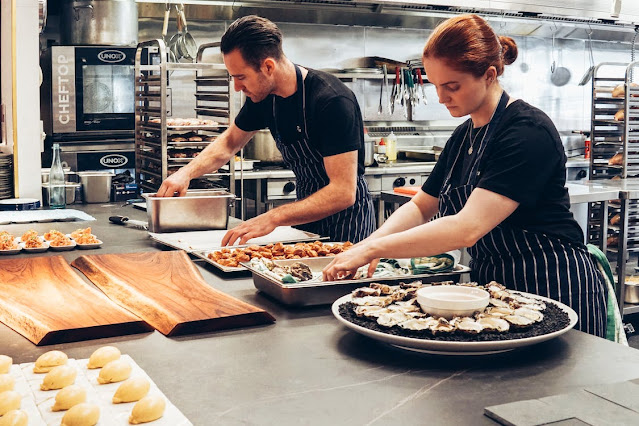Cuisine and Identity: How Food Defines Us
Food is a universal language that transcends cultural barriers and has the power to bring people together. It is not only a source of nourishment but also a reflection of a community's history, beliefs, and values. The cuisine of a region or country is an important aspect of its identity, and the way people prepare, eat, and share food is a reflection of their cultural heritage. This article will explore how food shapes our identity and how it is intertwined with our cultural and social experiences.
The Intersection of Food and Culture
Food is a fundamental part of our lives, and it plays a critical role in shaping our cultural identity. The cuisine of a region or country reflects its unique history, geography, and climate. The ingredients used, the cooking techniques employed, and the way people eat are all influenced by the cultural, social, and economic factors of a region. Food is a medium through which we express our cultural identity, and it is an important way in which we communicate with others.
The cuisine of a region is often shaped by its history. For example, the cuisine of Mexico is influenced by the country's indigenous population as well as the Spanish colonial period. Mexican cuisine is characterized by the use of spices, chilies, and corn, which were staples in the indigenous diet. The influence of the Spanish colonial period is seen in dishes such as mole, which is a complex sauce that combines indigenous and Spanish ingredients.
The way people prepare, eat, and share food is also influenced by cultural factors. In some cultures, such as Japan, food preparation is considered an art form. The emphasis is on the presentation of the food, and great care is taken to ensure that the dish is visually appealing. In other cultures, such as India, food is often eaten with the hands, and sharing a meal is a sign of hospitality.
The Role of Food in Social Identity
Food is not only a reflection of our cultural identity but also plays a significant role in our social identity. The way we eat and the foods we choose to eat are often determined by our social class, ethnicity, and gender. For example, in many societies, meat is considered a symbol of wealth and power, and those who can afford it consume it in greater quantities. In contrast, vegetarianism is often associated with religious beliefs or a desire to live a healthy lifestyle.
Food also plays a significant role in the formation of social bonds. Sharing a meal with others is a common way to build social connections and express friendship. In many cultures, food is an integral part of celebrations and festivals, and the sharing of food is seen as a way to strengthen social ties.
The Evolution of Food Production and Consumption
The way we produce and consume food has changed dramatically over time. In the past, food was primarily produced locally, and people ate what was available in their region. With the advent of modern transportation and communication, food production and consumption have become globalized. Today, we can eat foods from around the world, and exotic ingredients are readily available in supermarkets.
However, the industrialization of food production has also had negative consequences. Large-scale farming and the use of pesticides and other chemicals have led to environmental degradation and concerns about food safety. There is also growing awareness of the ethical implications of modern food production, such as the treatment of animals and the impact on farmers in developing countries.
Conclusion
Food is more than just sustenance. It's a way to connect with our roots, our families, and our communities. It's a way to express ourselves and to showcase our cultural heritage. By understanding the role that food plays in our identities, we can better appreciate the diversity and richness of our world.
